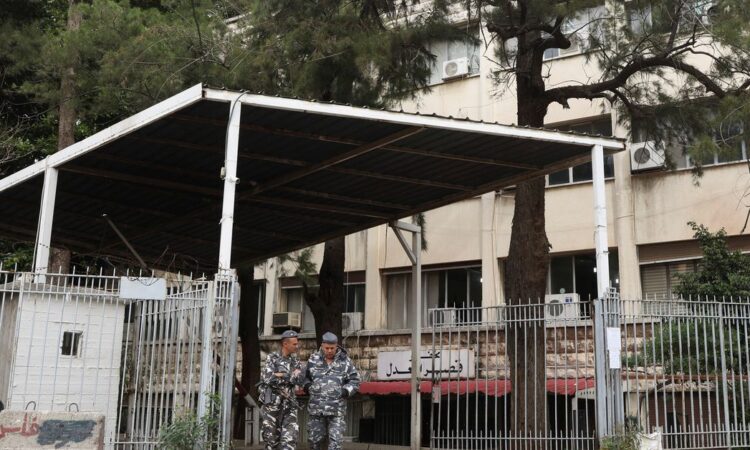
BEIRUT, March 17 (Reuters) – Lebanon’s central bank governor on Friday told European officials that public funds were not transferred to a company owned by his brother and said no money from the bank entered his own personal account.
Riad Salameh, 72, is being investigated alongside his brother Raja in Lebanon and in at least five European countries over allegedly stealing hundreds of millions of dollars over more than a decade and laundering some of the proceeds abroad.
The brothers deny wrongdoing. Salameh says the allegations are part of an attempt to scapegoat him for Lebanon’s financial meltdown.
Lebanon has charged them in two cases but European officials have yet to announces charges.
Salameh was interrogated in hearings on Thursday and Friday by a Lebanese judge relaying nearly 200 questions submitted by French and German officials, a senior judicial source said.
Salameh described Friday’s hearing as “good” to Reuters.
In a later statement, he said that at the session he had reiterated evidence and documents submitted to the judiciary in Lebanon and abroad, and offered a detailed explanation of them.
Those documents showed that “no money from the central bank” had entered the account of Forry Associates, a firm owned by his brother, the statement said.
European prosecutors suspect the central bank collected commissions as a fee from bond buyers and then transferred the funds to Forry.
Swiss authorities suspect the Salameh brothers may have illegally taken more than $300 million in this way from the central bank, laundering some of the money in Switzerland.
Salameh’s statement also said his personal account at the central bank was “not linked” to accounts where deposits were being made and that “no money from the central bank was transferred into my account”.
‘BIG ACCUSATIONS’
A senior judicial source told Reuters investigators asked Salameh on Friday about the central bank’s links to Forry, his assets abroad, the source of his wealth and transfers he made to associates and relatives.
The European officials will now leave but want to return for hearings with Raja Salameh and the governor’s assistant Marianne Houayek, said judge Helene Iskandar, who attended both hearings.
Iskandar, who represents the Lebanese state and has charged the Salameh brothers and Houayek in a separate case, said she wanted Lebanon to recuperate any assets abroad seized in foreign probes into Salameh.
Last year, prosecutors in Germany said Salameh was a suspect in a case that led to the freezing of some 120 million euros($132 million) of Lebanese assets abroad.
“These are big accusations, we must preserve the Lebanese state’s right,” she told Reuters.
Salameh for decades enjoyed strong backing from Lebanese elites as he financed a state rife with corruption and enforced policies that earned commercial banks massive profits.
But he has faced increased scrutiny since a 2019 financial crisis resulting from decades of profligate spending, corruption and unsustainable policies by Lebanon’s leaders.
Some of his long-time allies have even moved to distance themselves from him.
He says he is not interested in staying on after his latest six-year term ends in July, bringing an end to a 30-year tenure.
No clear successor has emerged, raising the possibility that the central bank’s vice governor could take over.
Reporting by Laila Bassam and Timour Azhari; Writing by Maya Gebeily; Editing by Angus MacSwan and Mark Potter
Our Standards: The Thomson Reuters Trust Principles.






